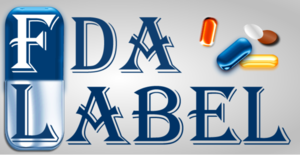The Alabama Supreme Court has ruled, for the second time, that Pfizer could be sued for damages allegedly caused by its heartburn drug Reglan (metoclopramide), even if the plaintiff had only taken a generic version of the drug. The ruling follows a rehearing requested by Pfizer, which failed to overturn the original ruling.
Branded drugmaker could be sued for generic’s side effects
Home/Pharma News
|
Posted 29/08/2014
 0
Post your comment
0
Post your comment

The court’s decision rests on federal legislation stating that generics companies must use the same labelling on their products as that used by the branded drugmaker. Generics companies are not currently allowed to amend official labels. The plaintiff in this case suffered side effects that were not included on the drug label.
The plaintiff claims he had developed the movement disorder tardive dyskinesia after taking generic versions of Reglan. He sued Actavis and Teva, the generic companies that made the drugs he took, as well as Wyeth, which developed the drug, for failing to adequately warn about Reglan’s risks. Wyeth was bought by Pfizer in 2009.
Pfizer argues that branded drugmakers should not be held liable for damages allegedly caused by generic versions of their drugs. Alabama’s ruling does not fall in line with court decisions nationwide. There are two examples of similar rulings in recent years (one in California, one in Vermont) but a company lawyer told the New York Times that more than 70 court decisions, including four from federal appeals courts, had taken the opposite view.
‘It has national implications,’ a Dallas lawyer, who has filed hundreds of similar cases in several states, told the New York Times. ‘I suspect that now, like most folks, if a client comes into my office, I’d be suing both the generic they took and the brand who’s responsible for the label.’
The US business magazine Forbes concludes that the US Food and Drug Administration may decide the issue, perhaps by revising regulations so that generic drugmakers can update product labelling and warn patients about risks associated with their drugs. Whether or not this will happen remains to be seen.
Related article
Brand-name drugmaker can be sued for harm caused by generic drug
Permission granted to reproduce for personal and non-commercial use only. All other reproduction, copy or reprinting of all or part of any ‘Content’ found on this website is strictly prohibited without the prior consent of the publisher. Contact the publisher to obtain permission before redistributing.
Copyright – Unless otherwise stated all contents of this website are © 2014 Pro PharmaCommunications International. All Rights Reserved.
Guidelines
US guidance to remove biosimilar comparative efficacy studies
New guidance for biologicals in Pakistan and Hong Kong’s independent drug regulatory authority
Policies & Legislation
China updates regulations to encourage research and innovation and improved drug safety
Brazil and Mexico forge alliance to streamline medical approvals and boost production
Formycon signs new aflibercept biosimilar pacts and launches ranivisio in Europe

Home/Pharma News Posted 13/11/2025
The best selling biotechnology drugs of 2008: the next biosimilars targets









Post your comment